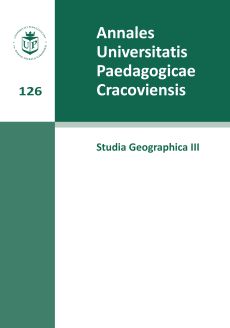Innovation in hotel industry and the adaptation of historical objects into accommodation facilities
Keywords:
innovation, historical objects, castle, palace, mansion, accommodation facilitiesAbstract
Nowadays, tourism is a crucial sector of national economy, and for many countries and regions it is one of the goals of economic activity, at the same time being a means of social and economic revival. Therefore, in order to professionally present the tourist potential and offer, and to attract tourists, tourist products should be organized, promoted and introduced in a relevant way. It is necessary to bear in mind that tourism is a service sector, a sector in which different kinds of innovations are adapted very quickly. The aim of this article is to present the innovation in the accommodation industry and to show that historical objects in Poland are more and more often adapted into accommodation facilities, which undoubtedly influences the development of tourism in the region where these objects are used. I will draw the reader’s attention to the beneficial conditions and positive effects of running hotels in historical buildings, as well as the negative aspects and threats that stem from converting historical objects into hotels. I will show the outcome of surveys conducted on a group of 150 respondents that were to determine how many persons made use of such object sand that allowed getting acquainted with the respondents’ opinion about the conversion of historical objects into accommodation facilities. Finally, I will suggest a growth strategy for hotels which function in historical buildings.
References
Dolecka M., 2003, Nowoczesność spotyka tradycję: hotele w obiektach zabytkowych, „Rynek Turystyczny”, nr 12, s. 44–46
Grabiszewski M., 2009, Adaptacja obiektów zabytkowych na cele hotelowe, [w:] Adaptacja obiektów zabytkowych do współczesnych funkcji użytkowych, red. Bugusława Szmygina, Wydawnictwo Politechniki Lubelskiej, Warszawa-Lublin, s. 43-54
Grabiszewski M., 2007 Funkcja hotelowa w obiektach zabytkowych Bydgosko-Toruńskiego Obszaru Metropolitalnego, Konferencja „Aglomeracje miejskie w strukturze osadniczej kraju i regionu”, WSG, Instytut Geografii i Gospodarki Przestrzennej, 5-7 grudnia 2007r., Bydgoszcz
Hjalager A-M.,2010, A review of innovation research in tourism, Tourism Management, vol. 31, 1, p. 1-12, 2010
Jalinik M., 2008, Innowacje w rozwoju turystyki, Wydawnictwo Politechniki Białostockiej, Białystok, ss. 465
Krupa J.,2010, Innowacyjność w turystyce, Wyd. Pro Carpathia, Rzeszów
Marczuk J., 2008, Hotel z historią: nowe centrum konferencyjne w murach dawnej rezydencji dworskiej, „Świat Hoteli”, nr 5, s. 30–31
Olchowik L., 2002, Turystyka w zabytkach, „Wiadomości Turystyczne”, nr 29, s.11–12
Pasieczny R., 2006, Wypoczynek w dworach i pałacach, Wyd. Wiedza i życie, Warszawa
Pawlikowska-Piechotka A., 2004, Funkcje turystyczne dworów, „Problemy Turystyki”, s. 99–109
Rydel M., 2008, Założenia do strategii marketingowej dla sieci obiektów zabytkowych w Polsce, [w:] Współczesny marketing trendy działania, red. Genowefa Sobczyk, wyd. PWE, Gdańsk
Światkowska M., Pietraś A., 2008, Adaptacja obiektów zabytkowych dla potrzeb hotelarstwa jako forma podniesienia atrakcyjności regionu turystycznego, [w:] Innowacje w rozwoju turystyki, red. Jalinik M., Wydawnictwo Politechniki Białostockiej, Białystok, s. 438–447
Szlezynger P., 2003, Adaptacja kompleksów budynków zabytkowych na hotele na wybranych przykładach w Krakowie i okolicy, "Problemy Turystyki", vol. 26, nr 1-4, s. 123-136
Wójtowicz B., 2010, Strategia rozwoju a ocena jakości usług na przykładzie Zespołu Pałacowego w Kurozwękach w świetle badań sondażowych, [w:] Przedsiębiorczość w warunkach integracji europejskiej, red Z. Zioło, T. Rachwał, Przedsiębiorczość–Edukacja, nr 6, Zakład Przedsiębiorczości i Gospodarki Przestrzennej Instytutu Geografii Uniwersytetu Pedagogicznego w Krakowie, Wydawnictwo Nowa Era, Warszawa–Kraków, s. 431–450
Downloads
Published
Issue
Section
License
The submission of a paper to be published is synonymous with an agreement to transfer the copyright free of charge from the author to the publisher. The author also agrees to permit the publisher to publish the paper in printed form, open access online form, digital library form and other digital platforms with which the publisher has or will have a publishing agreement. Furthermore, the author agrees to not limit the number of copies that may be printed or issued by the publisher. In the case of co-authored papers, it is assumed that the corresponding author is authorized to represent the remaining co-authors in this respect. Authors are requested to sign a copyright declaration.

